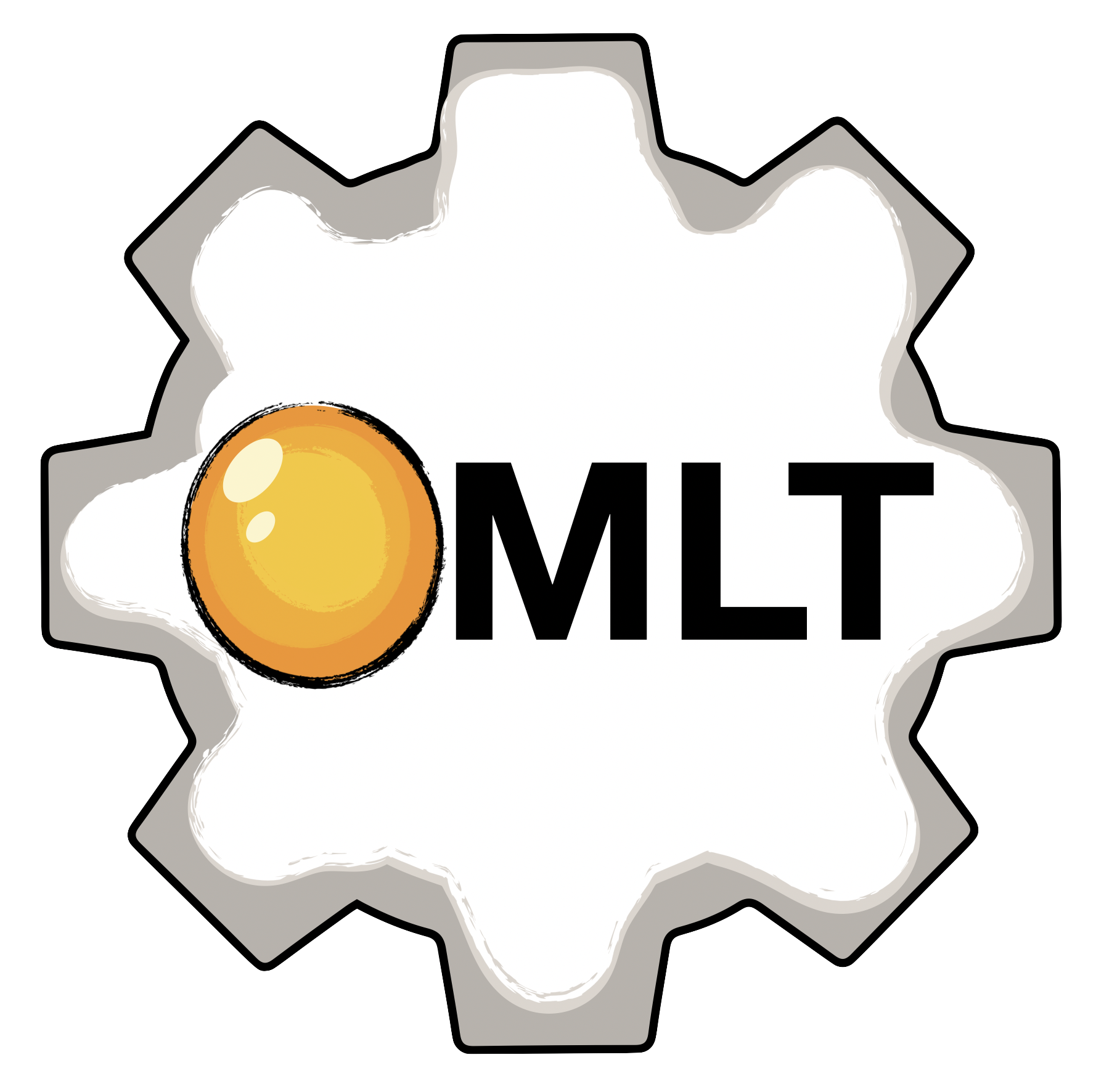OMLT is a Python package for representing machine learning models (such as neural networks) within the Pyomo optimization environment.
Project description





OMLT: Optimization and Machine Learning Toolkit
OMLT is a Python package for representing machine learning models (neural networks and gradient-boosted trees) within the Pyomo optimization environment. The package provides various optimization formulations for machine learning models (such as full-space, reduced-space, and MILP) as well as an interface to import sequential Keras and general ONNX models.
Please reference the paper for this software package as:
@article{ceccon2022omlt,
title={OMLT: Optimization & Machine Learning Toolkit},
author={Ceccon, F. and Jalving, J. and Haddad, J. and Thebelt, A. and Tsay, C. and Laird, C. D and Misener, R.},
journal={Journal of Machine Learning Research},
volume={23},
number={349},
pages={1--8},
year={2022}
}
When utilizing linear model decision trees, please cite the following paper in addition:
@article{ammari2023,
title={Linear Model Decision Trees as Surrogates in Optimization of Engineering Applications},
author= {Bashar L. Ammari and Emma S. Johnson and Georgia Stinchfield and Taehun Kim and Michael Bynum and William E. Hart and Joshua Pulsipher and Carl D. Laird},
journal={Computers \& Chemical Engineering},
volume = {178},
year = {2023},
issn = {0098-1354},
doi = {https://doi.org/10.1016/j.compchemeng.2023.108347}
}
When utilizing graph neural networks, please cite the following paper in addition:
@article{zhang2024,
title = {Augmenting optimization-based molecular design with graph neural networks},
author= {Shiqiang Zhang and Juan S. Campos and Christian Feldmann and Frederik Sandfort and Miriam Mathea and Ruth Misener},
journal = {Computers \& Chemical Engineering},
volume = {186},
pages = {108684},
year = {2024},
issn = {0098-1354},
doi = {https://doi.org/10.1016/j.compchemeng.2024.108684},
}
Documentation
The latest OMLT documentation can be found at the readthedocs page. Additionally, much of the current functionality is demonstrated using Jupyter notebooks available in the notebooks folder.
Example
import tensorflow
import pyomo.environ as pyo
from omlt import OmltBlock, OffsetScaling
from omlt.neuralnet import FullSpaceNNFormulation, NetworkDefinition
from omlt.io import load_keras_sequential
#load a Keras model
nn = tensorflow.keras.models.load_model('tests/models/keras_linear_131_sigmoid', compile=False)
#create a Pyomo model with an OMLT block
model = pyo.ConcreteModel()
model.nn = OmltBlock()
#the neural net contains one input and one output
model.input = pyo.Var()
model.output = pyo.Var()
#apply simple offset scaling for the input and output
scale_x = (1, 0.5) #(mean,stdev) of the input
scale_y = (-0.25, 0.125) #(mean,stdev) of the output
scaler = OffsetScaling(offset_inputs=[scale_x[0]],
factor_inputs=[scale_x[1]],
offset_outputs=[scale_y[0]],
factor_outputs=[scale_y[1]])
#provide bounds on the input variable (e.g. from training)
scaled_input_bounds = {0:(0,5)}
#load the keras model into a network definition
net = load_keras_sequential(nn,scaler,scaled_input_bounds)
#multiple formulations of a neural network are possible
#this uses the default NeuralNetworkFormulation object
formulation = FullSpaceNNFormulation(net)
#build the formulation on the OMLT block
model.nn.build_formulation(formulation)
#query inputs and outputs, as well as scaled inputs and outputs
model.nn.inputs.display()
model.nn.outputs.display()
model.nn.scaled_inputs.display()
model.nn.scaled_outputs.display()
#connect pyomo model input and output to the neural network
@model.Constraint()
def connect_input(mdl):
return mdl.input == mdl.nn.inputs[0]
@model.Constraint()
def connect_output(mdl):
return mdl.output == mdl.nn.outputs[0]
#solve an inverse problem to find that input that most closely matches the output value of 0.5
model.obj = pyo.Objective(expr=(model.output - 0.5)**2)
status = pyo.SolverFactory('ipopt').solve(model, tee=False)
print(pyo.value(model.input))
print(pyo.value(model.output))Development
OMLT uses just to manage development tasks:
just to list available tasks
just check to run all checks
just fix to apply any auto-fixes
just dev to install development dependencies in your current Python environment
just dev-gpu same as dev but with GPU support
just docs to build the documentation
OMLT also includes a workflow for publishing new releases. This workflow can be triggered by pushing a new tag with an updated version number:
git tag <version> # e.g. git tag v1.2.0 git push upstream --tags
Contributors
GitHub |
Name |
Acknowledgements |
|---|---|---|
Jordan Jalving |
This work was funded by Sandia National Laboratories, Laboratory Directed Research and Development program. |
|
Francesco Ceccon |
This work was funded by an Engineering & Physical Sciences Research Council Research Fellowship [GrantNumber EP/P016871/1]. |
|
Carl D. Laird |
Initial work was funded by Sandia National Laboratories, Laboratory Directed Research and Development program. Current work supported by Carnegie Mellon University. |
|
Calvin Tsay |
This work was funded by an Engineering & Physical Sciences Research Council Research Fellowship [GrantNumber EP/T001577/1], with additional support from an Imperial College Research Fellowship. |
|
Alexander Thebelt |
This work was supported by BASF SE, Ludwigshafen am Rhein. |
|
Bashar L. Ammari |
This work was funded by Sandia National Laboratories, Laboratory Directed Research and Development program. |
|
Juan S. Campos |
This work was funded by an Engineering & Physical Sciences Research Council Research Fellowship [GrantNumber EP/W003317/1]. |
|
Shiqiang Zhang |
This work was funded by an Imperial College Hans Rausing PhD Scholarship. |
Project details
Release history Release notifications | RSS feed
Download files
Download the file for your platform. If you're not sure which to choose, learn more about installing packages.
Source Distribution
Built Distribution
Filter files by name, interpreter, ABI, and platform.
If you're not sure about the file name format, learn more about wheel file names.
Copy a direct link to the current filters
File details
Details for the file omlt-1.2.2.tar.gz.
File metadata
- Download URL: omlt-1.2.2.tar.gz
- Upload date:
- Size: 2.8 MB
- Tags: Source
- Uploaded using Trusted Publishing? No
- Uploaded via: twine/6.1.0 CPython/3.12.9
File hashes
| Algorithm | Hash digest | |
|---|---|---|
| SHA256 |
011ea5ee42033cf8b12f9ae30106d126d13e074ec97ea313aec9578682d83a14
|
|
| MD5 |
f7b789560008f430bdc2b877c05172db
|
|
| BLAKE2b-256 |
478b22cdf32fd76555a6c32337ce52d311bbab9b0b71d45e5ae4b1e558c4fbe5
|
File details
Details for the file omlt-1.2.2-py3-none-any.whl.
File metadata
- Download URL: omlt-1.2.2-py3-none-any.whl
- Upload date:
- Size: 57.3 kB
- Tags: Python 3
- Uploaded using Trusted Publishing? No
- Uploaded via: twine/6.1.0 CPython/3.12.9
File hashes
| Algorithm | Hash digest | |
|---|---|---|
| SHA256 |
673b60b69b01ccfa1391625027801c8a34037ca3f958648b53b215a23d9bd143
|
|
| MD5 |
c5c5b6d890cca64e1fdfb2cbdc0d72ab
|
|
| BLAKE2b-256 |
73c3c55fab1f3cdc66eeb762bbf60f30f830179c67ceb551ba00ddc5dfa85c50
|























